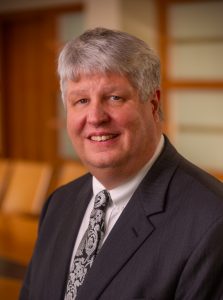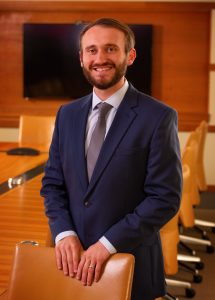The Wisconsin Fair Dealership Law Enters Its 50th Year: Excluded Relationships
Earlier in Stafford Rosenbaum’s Wisconsin Fair Dealership Law blog series, we explained that the WFDL extends good-cause, notice, and opportunity-to-cure protections to an extraordinarily diverse set of businesses, including beauty product wholesalers, lawn and farm equipment distributors, and even municipal contractors. That said, the statute and case law have created specific and limited exceptions to the range of businesses that can claim protection under the WFDL.
Motor Vehicle Dealerships
Section 135.07 provides that the Wisconsin Fair Dealership Law does not provide protection to a “dealership to which a motor vehicle dealer or a motor vehicle distributor or wholesaler as defined in s. 218.01(1) is a party in such capacity.” It follows that the ability of a motor vehicle dealer to sell a particular line of motor vehicles is governed by the Wisconsin Motor Vehicle Dealer Law (the “WMVDL”), Wis. Stat. §§ 218.01-.0163. The WMVDL provides good-cause protection similar to the WFDL, prohibiting a motor vehicle manufacturer from terminating a dealership without “due regard to the equities” and “just provocation.” Wis. Stat. § 218.0116(i). If either of those does not exist, the manufacturer’s termination is void and the dealer may recover damages and attorneys’ fees. See Wis. Stat. §§ 218.0114(7)(d), 218.0163.
That said, nothing in the Wisconsin Fair Dealership Law prohibits its application to aspects of a motor vehicle dealer’s relationship with a grantor that fall outside of the sale and distribution of motor vehicles. In other words, a motor vehicle dealer’s ability to sell accessories, clothing, vehicles parts, and service may still fall within the WFDL’s scope, and only the dealer’s ability to sell a particular vehicle line would fall outside of the WFDL’s protection and within the WMVDL’s protection.
Insurance Business and Door-to-door Sales
Section 135.07 also provides that the WFDL does not apply to the insurance business or where “goods or services are marketed by a dealership on a door-to-door basis.” The carve-out of the insurance industry was in part due to the enactment of Wis. Stat. Chapter 628, which was intended to a create a statutory mechanism “relating to the marketing, regulation, granting rule marking authority and providing penalties.” Wis. Stat. § 628.01(5). As for door-to-door sales, there is a difference between going to the customer to conduct some sales and making unsolicited appearances at every home in a given neighborhood. It appears that the door-to-door sales exception applies only to the latter. Thus, just because a dealer makes some house calls, that does not mean that it cannot be protected under the WFDL. See Bush v. Nat’l Sch. Studios, Inc., 139 Wis. 2d 635, 407 N.W.2d 883 (1987) (door-to-door sales exclusion did not require dealer to maintain a fixed place of business or never go to a customer).
Manufacturers’ Representatives
The Wisconsin Fair Dealership Law protects “dealerships,” not manufacturers’ representatives. In general, manufacturers’ representatives bear many similarities to protected dealerships. Manufacturer representatives solicit and arrange sales of the product for the manufacturer, promote the product, and provide aftermarket support. But, unlike dealerships, manufacturers’ representatives are not dealers because they lack the authorization to transfer the product at the point of sale or bind the manufacturer to do so. If a salesperson has the authority to sell you a product and transfer ownership, they likely work for a dealer; if instead the salesperson can take an order and fill it only upon approval of the manufacturer, they are a manufacturer’s representative and are not protected by the WFDL.
Dealerships Existing Prior to April 5, 1974
The Wisconsin Fair Dealership Law does not apply to dealerships that were entered into before April 5, 1974, unless those dealerships were renewed or extended by the parties in the intervening years. The Wisconsin Supreme Court held that retroactive application of the WFDL would impair the parties’ right to contract under the Contact Clause of the Constitution. Wipperfurth v. U‑Haul Co., 101 Wis. 2d 586, 304 N.W.2d 767 (1981). This exception is winnowing as time goes on, but dealership relationships formed prior to 1974 may not be protected by the WFDL, despite otherwise having the criteria of a protected dealership.
Situated in Wisconsin
In 1977, after the Fifth Circuit and Sixth Circuit each applied the Wisconsin Fair Dealership Law to protect non-Wisconsin dealers, the Wisconsin Legislature amended the WFDL to apply only to dealerships that are “situated in this state.” See Wis. Stat. § 135.02(2). To determine whether a dealership is situated in Wisconsin, the Wisconsin Supreme Court adopted a modified version of the Ziegler factor test that is directed at examining the dealer’s reliance on and involvement within the Wisconsin market. Baldewein Co. v. Tri-Clover, Inc., 2000 WI 20, 233 Wis. 2d 57, 606 N.W.2d 145. Although a mere footfall in Wisconsin will not qualify a party for WFDL protection, at least one court has found a triable issue of fact regarding whether a dealer was situated in the state when it derived less than 5% of its total sales from the state of Wisconsin. See Brio Corp. v. Meccano S.N., 690 F. Supp. 2d 731 (E.D. Wis. 2010)
***
Recognizing whether these exceptions apply to a party’s business is paramount. A company can look and feel very much like a protected dealership only to fall within a particular exception. For that reason, when conducting a dealership analysis, parties should be cognizant of these exceptions and assess whether their relationship falls outside of WFDL protection.
Stafford Rosenbaum LLP is a full-service law firm with two convenient office locations in Madison and Milwaukee, Wisconsin. Over 140 years of dedication to businesses, governments, nonprofits, and individuals has proven that effective client communication continues to be the heart of our practice.





